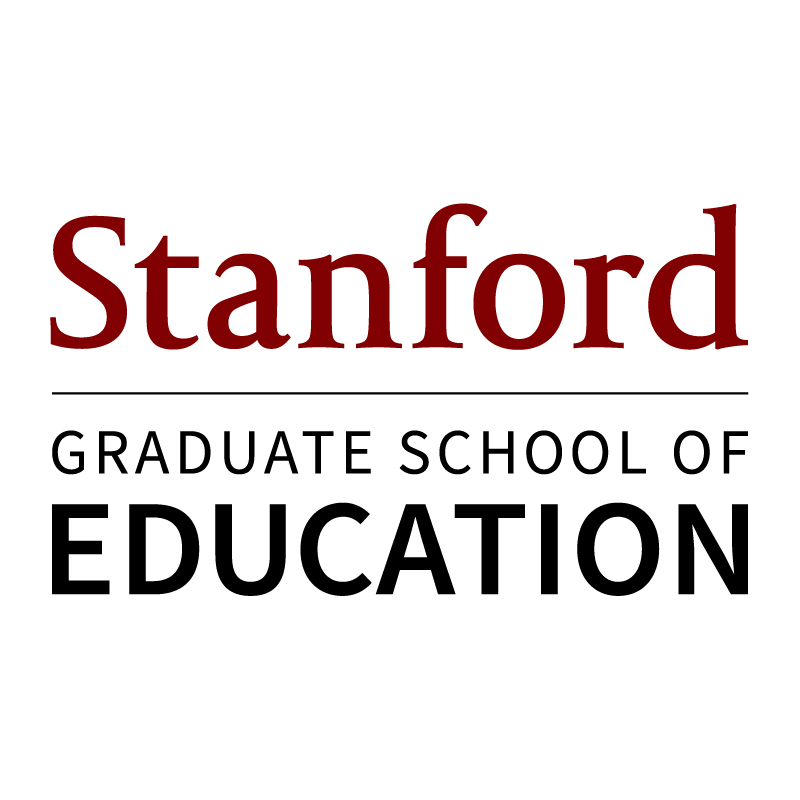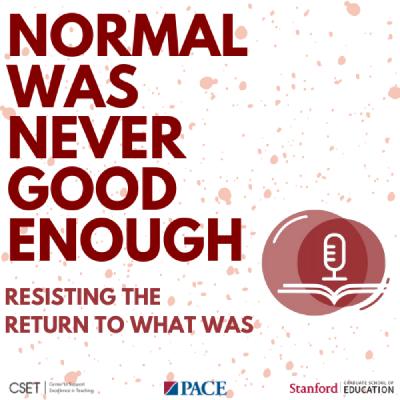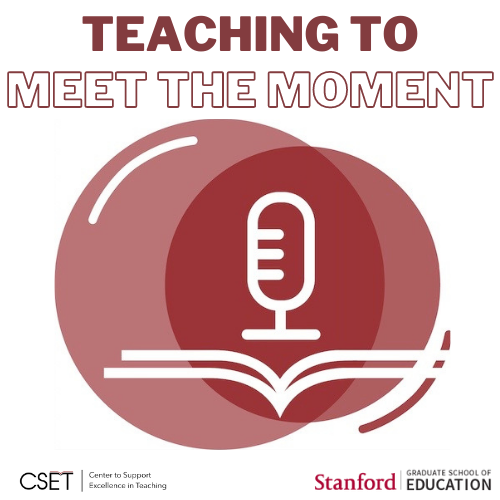Discover Stanford University GSE
Stanford University GSE

16 Episodes
Reverse
Over the past year and a half districts have made substantial investments in technology infrastructure to respond to schooling during a pandemic. However, this is not the first time in educational history that schools have invested in technology in an attempt to address an educational dilemma. Time and time again, school districts have made investments in technological tools in the hopes they will solve a persistent problem of practice and will finally result in equitable teaching and learning for all. Unfortunately, all too often, conversations about educational technology are driven by the platform or device and promise quick fixes to long standing educational problems. With the return to in-person teaching, coupled with the improved infrastructure and increased funds available to districts, we need to leverage this time to resist a return to what was in the way we think about educational technology. In our final conversation of our three-part series we will discuss how technology can be used in service of student-centered learning and what schools and districts can do to create a sustainable approach to instructional technology that promotes student agency, interest-driven learning environments, and professional growth in teachers. Join us as we have a conversation about ways to let learning lead and the technology serve as we reimagine and rebuild a more just and equitable schooling system.
Our guests:
Aaron Ragsdale, Makery Lab Manager at the Stanford Graduate School of Education
Dewayne J. McClary, Director, League of Innovative Schools, Digital Promise
Sandra Velásquez, Innovative Learning & Technology Integration Coordinator at the San Mateo County Office of Education
As school districts make plans for safely reopening schools in the fall and helping students cope with their trauma, it is urgent that school and district leaders recognize and make space for teachers to process and heal from their own feelings of loss and grief. Nearly every teacher we work with puts their emotional needs aside in order to address the emotional needs of their students when tragedy inevitably occurs in our schools. That capacity to harness deep empathy for others is one of the most admirable characteristics of teachers. In the wake of the pandemic, racial unrest, and economic turmoil, we must be cognizant that this characteristic also has the potential to be deeply damaging for teachers’ mental health in the long run without support. Concern for student wellbeing and trauma is frequently brought up right now, but if we fail to provide the same empathy for teachers, we won’t be setting anyone up for success. In order for educators to be healthy, whole, and compassionate in their work with students and families, self-care must be a priority. In the second conversation of a 3 part series, we’ll discuss why and how districts must create time and space for educators to practice self-care.
Our guests:
Antero Garcia, Assistant Professor in the Graduate School of Education at Stanford University
Oriana Ides, School Mental Health Training Specialist at the Center for Applied Research Solutions (CARS)
Janelle Quintans Bence, 9th Grade English facilitator in her 21st year of teaching in the state of Texas
The pandemic has exposed long-standing systemic inequities in education and has cost lives and livelihoods in families already vulnerable and on the edge. School staff have also experienced greater stress and burnout this year. As schools complete the year, a major infusion of funding has opened the door to new possibilities. As we recover, we must build toward an education system that places equity and relationships at the center. In the first conversation of a 3 part series, we will discuss how the rebuilding and recovery should begin and the actions districts and school leaders can take to prioritize building and nurturing relationships among students, families, and educators.
Our guests:
Heather J. Hough, the Executive Director of Policy Analysis for California Education (PACE),
Hayin Kimner, Interim Executive Director of Parents for Public Schools of San Francisco and also a Senior Policy and Research Fellow for Policy Analysis for California Education (PACE)
Guthrie Fleischman, Principal at Crespi Middle School in El Sobrante, CA
Dr. Chris Comier
Tim Leistikow
Christina Johnson
Nick Chan
Jaime Flesher
Chelsea Hinderlie
Ward Stern
Christine Bywater
Arturo Lazaro Jr. , Math Teacher MESA Charter HS, Big Apple Award Recipient 2020
Jen Price, High Tech High Kindergarten teacher, 14th year teaching
Chris Dier
Episode 4 | Culturally Sustaining Classrooms Part II: Pedagogy + Engagement/Management
Guests:
Daniel Russell
Felicia Homberger
Madison Payton
Mike Metz
Episode 3 | Culturally Sustaining Content Choices
Guests:
Vielka Hoy
Lauren Beal
Andrew Haaheim
Lydia McClanahan
Episode 2 | Community is Possible
Featuring guests:
Sandra Velásquez
Lisa Kelly
Dr. Micia Mosely
Episode 1 | Staying True to Our Values | January 12
Featuring guests:
Margaret Ramsey, Menlo School
Ami Reif, Buffalo Grove High School
Jessica Stoval, Doctoral Student, Stanford GSE
A conversation with students Tatiana Zamora, Jesse Ramirez, Monica Sircar, and Jane Weiss.
A conversation with students Ghisly Garcia and Brian Chien.
A conversation with students Daniel Pimentel and Elena Hammond.
A conversation with students Becca Hanlin and Rob Heavner.
A conversation between professors Ann Jaquith and Ann Porteus.
Ann Jaquith is the Associate Director of Stanford Center for Opportunity Policy in Education.
Ann Porteus is a Senior Lecturer at the Stanford Graduate School of Education







